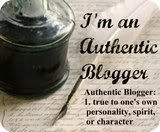@cellodav this is for you!
As I sit here syncing over 300 songs to my iPhone, I think back to a question I got on Twitter today about Star Trek books. I decided there was much more to say about them than what I could fit into a 140 character tweet, so here's my blog post on them.
I was an avid Star Trek book reader back in the days when they were all standalones, unable to reference each other because Gene Roddenberry's right-hand man, Richard Arnold, refused to let the books become bigger than the TV series (or so he thought). Evidently, Roddenberry was getting tired of being asked at conventions about things that happened in the books and other tie-in materials, so it was by studio fiat that the books had to be boring, self-contained adventures. Of course, some managed to rise above this, but the majority didn't.
I was out of Star Trek books for quite a while, so I don't know when the renaissance began, but suddenly the books were allowed to do things that they never had before. There were cross-overs, books actually referenced previous books! Many of the books felt like they were all taking place in one universe instead of every book being in a universe of its own.
Nowadays, most Trek books take place in one main continuity, able to reference each other at will and create one giant tapestry of a Trek universe that is exciting to read about. The good thing is that most authors are pretty good at catching the reader up on anything they might need to know for their story, so it's not necessary to read all of the books in the series. It definitely helps, though.
Star Trek: The Next Generation, Deep Space Nine, Voyager, and Enterprise all have continuing stories that take place after the last known televised (or, in TNG's case, cinematic) adventure, taking these characters into unknown realms and actually allowing a major character to die! I won't say which one, but let's just say it's an extremely major character. Since the studio will likely never use these characters again, the authors and publisher are allowed to do some interesting stuff with them, also creating new characters to fill in holes that might have been left when the series ended.
Here are some excellent examples of these books:
1) Full Circle - Voyager (by Kirsten Beyer)
There were four books that took place immediately after Voyager returned home, but they were pretty atrocious. Beyer manages to save them and write a thoroughly touching novel that spans two years and a couple of catastrophic events in the Trek universe.
2) The Destiny Trilogy - crossover (by David Mack)
I give you the link to Book 1, because it has links to Books 2 & 3 on the page. This trilogy is the ultimate Borg story, spanning all of the Trek series, including Enterprise. How Mack manages that, I won't reveal, but if you like wall-to-wall action with a philosophical bent, you can't beat this trilogy. Mack is one of my favourite Trek authors, and this trilogy is an excellent example of why. Don't like the Borg? Don't hold that against this series. Mack finds a way to make them interesting again.
Here's the rest of Mack's bibliography, and it's almost all good (I only say "almost" because I haven't read everything).
3) Articles of the Federation - by Keith R.A. DeCandido
This is the West Wing meets Star Trek, but DeCandido makes it work. If you were ever curious how the Federation is run, then this book will show you that. But it also had the usual DeCandido compelling characters and a plot that touches on a whole year's worth of stuff. It takes place fairly soon after the TNG movie Nemesis, and it's a great lead-in to the post-Nemesis Trek world.
Here is the rest of DeCandido's bibliography, as he's one of the most prolific Trek writers out there. I especially enjoyed The Art of the Impossible and Q&A. (Dave, that one I forgot about this morning, but I think you would like).
Finally, let me end this post on possibly the best Trek novel I have ever read. It's for you fans of the the Kirk/Spock era, and it's a love letter to the original series. It's the first book of the Crucible trilogy, and it's called Provenance of Shadows. The second and third books aren't quite as good, though. Each book in the Crucible series takes off from the episode "City on the Edge of Forever," and has one of the triad (McCoy, then Spock, then Kirk) as the main focus. In this book, there are two McCoys. The one who is rescued at the end of that episode, and the one who is doomed to remain on 1930s Earth because Kirk and Spock failed to rescue him. It's a heart-wrenching book, powerfully written. It's also huge, for a Trek book, but you won't even notice the pages passing by. I can honestly say I enjoyed this novel more than any other Trek novel out there. The rest of the trilogy is worth reading, but neither book matches this one in quality.
The best thing about the Crucible trilogy is that there are no continuity references to other books, and it actually contradicts some of the novels. There are references to every single original series episode and movie, however, but many of them are small, and if you blink you will miss them.
So if you want to dip your toes in the Trek universe, I would suggest going by what series you're interested in. If you didn't like TNG, no book is ever going to make Picard interesting to you (though you might want to try one just to see). If you have a favourite, series, I'd be happy to give you some suggestions on books within that series that you might find interesting.
Now is definitely a good time to get back into Trek reading.
Edit:
7/29/09 - I just realized that I have reviews of all three Crucible books up on Epinions. Here's the links to them:
Crucible #1: Provenance of Shadows (McCoy)
Crucible #2: The Fire & the Rose (Spock)
Crucible #3: The Star to Every Wandering (Kirk)
Subscribe to:
Post Comments (Atom)















Dave - thanks for the >140 post on this! I've always wondered why some early authors referred to "screens" while most talked about "shields"...
ReplyDeleteYou've made a compelling argument for Crucible too - it's on my "to read" list now.
Cheers,
cellodav